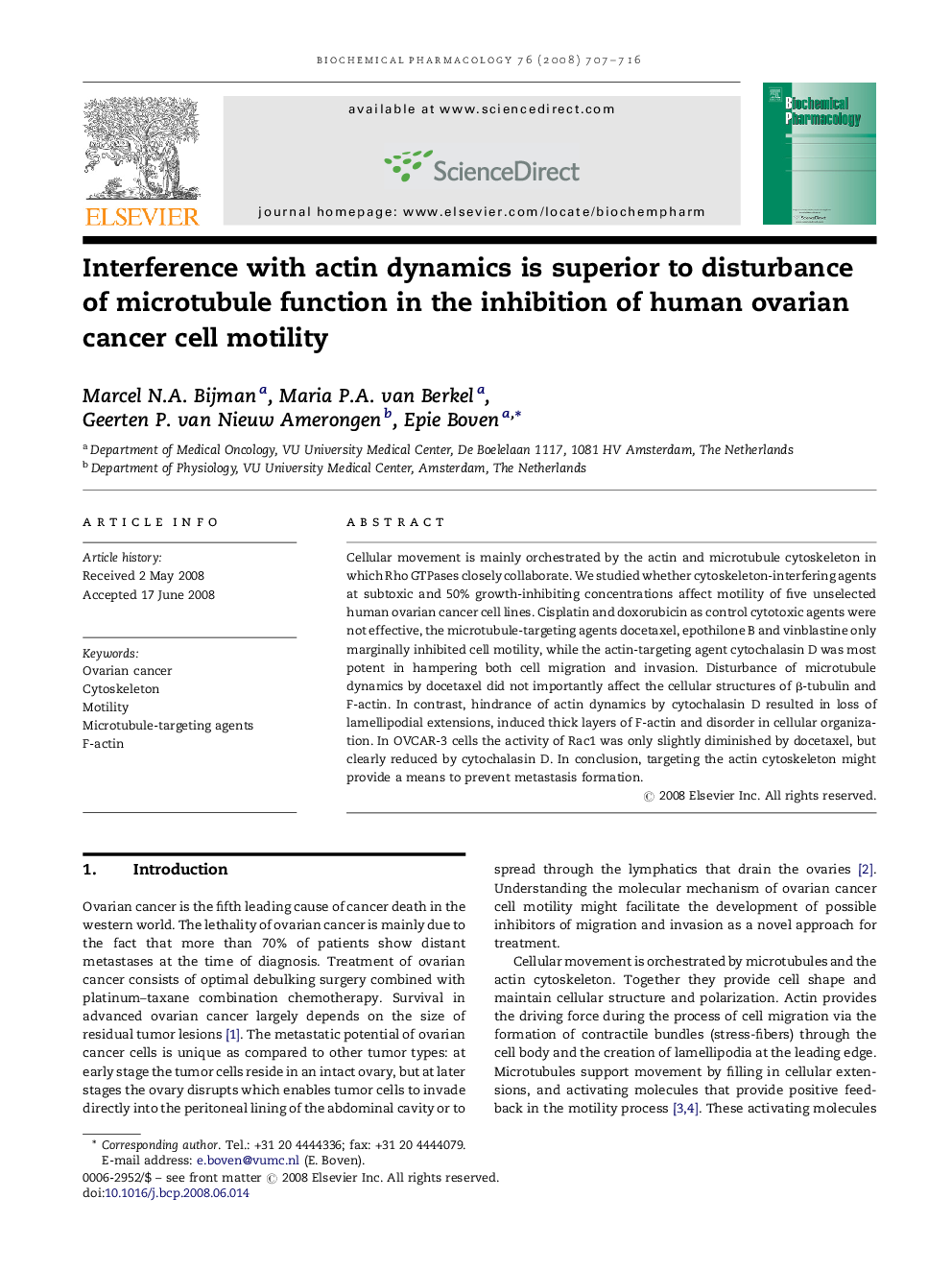| Article ID | Journal | Published Year | Pages | File Type |
|---|---|---|---|---|
| 2515021 | Biochemical Pharmacology | 2008 | 10 Pages |
Cellular movement is mainly orchestrated by the actin and microtubule cytoskeleton in which Rho GTPases closely collaborate. We studied whether cytoskeleton-interfering agents at subtoxic and 50% growth-inhibiting concentrations affect motility of five unselected human ovarian cancer cell lines. Cisplatin and doxorubicin as control cytotoxic agents were not effective, the microtubule-targeting agents docetaxel, epothilone B and vinblastine only marginally inhibited cell motility, while the actin-targeting agent cytochalasin D was most potent in hampering both cell migration and invasion. Disturbance of microtubule dynamics by docetaxel did not importantly affect the cellular structures of β-tubulin and F-actin. In contrast, hindrance of actin dynamics by cytochalasin D resulted in loss of lamellipodial extensions, induced thick layers of F-actin and disorder in cellular organization. In OVCAR-3 cells the activity of Rac1 was only slightly diminished by docetaxel, but clearly reduced by cytochalasin D. In conclusion, targeting the actin cytoskeleton might provide a means to prevent metastasis formation.
